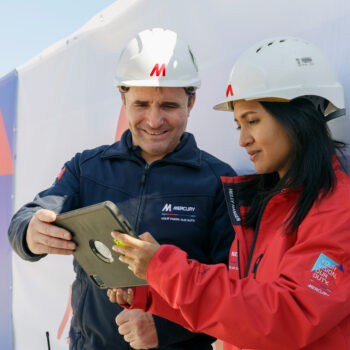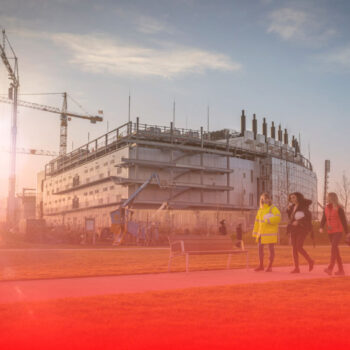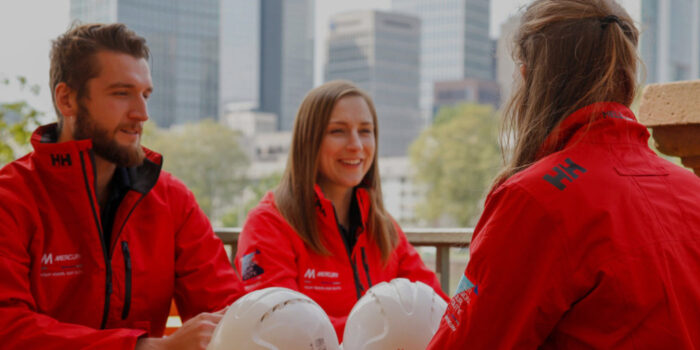News & Insights

The Edge of Mixed Reality: Digital innovation supporting delivery of CPH3 data centre project
Mixed Reality (MR) technology is supporting our delivery of Interxion: A Digital Realty Company’s data centre project in Copenhagen, Denmark, empowering us to push digital construction to the edge.
Trimble’s XR10 leverages true mixed reality (MR) technology, enabling us to overlay the design model of this 14.4MW data centre, within the context of the physical environment.
This solution has brought mixed reality to life on the CPH3 project for our client, adding value through increased team efficiency, reduced model errors and improved communication between our global teams.
Where virtual reality fully immerses the user in digital content, mixed-reality technology blends real and virtual objects, enabling the user to interact with both worlds. The project’s holograms can be moved, shaped, and resized in response to the user’s interaction with the physical world.
AR & MR construction tools are designed to allow the user to overlay the BIM model in the context of the real world facilitating an unambiguous visualisation of the project on a 1 to 1 scale.
This digital technology knows no borders and allows our project team, and our global BIM team to communicate and share information with our client’s US based team.

This approach encourages real-time collaboration and transparency among stakeholder to avoid project errors and delays.
One of our Digital Edge Champions, Eleftherios Giotis, a Surveying Engineer based on the CPH3 project regards the ability to share information with these stakeholders, through video and imagery as the most significant benefit of the XR10.
With the complete design of the building powered by BIM, Eleftherios is confident that the XR10 brings significant improvements to the general quality checks he undertakes when inspecting various elements of the project, through comparing the BIM model with the built environment around him.
For all outside work, Eleftherios is in regular communication with his BIM Manager based in London, and his BIM Lead who is based in our BIM office in Poland. Eleftherios reports that the greatest benefit of the XR10 is the ease at which it allows him to identify concerns with the model, which he can then quickly and clearly communicate to these members of the team remotely.
Previously, if any discrepancy was noticed, he would inspect the work using a total station, and emailing the results to the BIM team, who would then download the data and superimpose it on the design for review.
Now, he reports that by using videos and photographs generated by the XR10, he can better explain issues, and can generally gain a same day response.
From the perspective of our clients, VR/MR technology offers a more natural way to experience and understand work to be done, when compared to traditional 2d design drawings, enabling them to get a true sense of the project space and engage and interact with data more intuitively.
DIGITAL EDGE
The XR10 Hololens programme forms part of Mercury’s Beyond50 strategy, as part of the ‘Digital Edge’ pillar. Digital Edge aims to ensure that our frontline people have the right technology to enable them to deliver real value to our clients, pushing digital construction to the edge. Read more about innovation in Mercury here.
Like Mercury on Facebook.
Follow us on LinkedIn, Twitter and Instagram.


